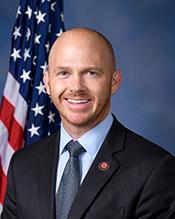0
0
0
END CELLS in CELLS Act
12/14/2023, 8:15 AM
Summary of Bill HR 3949
Bill 118 HR 3949, also known as the END CELLS in CELLS Act, is a piece of legislation introduced in the US Congress with the aim of addressing the issue of cell phone use in correctional facilities. The bill seeks to prohibit the use of cell phones by inmates in federal prisons and to establish penalties for those found in possession of such devices.
The END CELLS in CELLS Act is designed to combat the use of cell phones by inmates to engage in criminal activities, such as coordinating drug trafficking operations or orchestrating violent acts both inside and outside of prison walls. The bill recognizes the serious threat that cell phones pose to the safety and security of correctional facilities and aims to prevent inmates from using these devices to further their criminal enterprises.
Under the provisions of the END CELLS in CELLS Act, inmates found in possession of cell phones would face disciplinary action, including the loss of privileges and potential criminal charges. The bill also calls for increased security measures to prevent cell phones from being smuggled into prisons and for the implementation of technology to detect and block cell phone signals within correctional facilities. Overall, the END CELLS in CELLS Act is a bipartisan effort to address a pressing issue within the US prison system and to enhance the safety and security of both inmates and correctional staff. By prohibiting the use of cell phones by inmates and implementing stricter penalties for those found in possession of such devices, the bill aims to disrupt criminal activities within prisons and to protect the public from the potential harm caused by inmates using cell phones to coordinate illegal activities.
The END CELLS in CELLS Act is designed to combat the use of cell phones by inmates to engage in criminal activities, such as coordinating drug trafficking operations or orchestrating violent acts both inside and outside of prison walls. The bill recognizes the serious threat that cell phones pose to the safety and security of correctional facilities and aims to prevent inmates from using these devices to further their criminal enterprises.
Under the provisions of the END CELLS in CELLS Act, inmates found in possession of cell phones would face disciplinary action, including the loss of privileges and potential criminal charges. The bill also calls for increased security measures to prevent cell phones from being smuggled into prisons and for the implementation of technology to detect and block cell phone signals within correctional facilities. Overall, the END CELLS in CELLS Act is a bipartisan effort to address a pressing issue within the US prison system and to enhance the safety and security of both inmates and correctional staff. By prohibiting the use of cell phones by inmates and implementing stricter penalties for those found in possession of such devices, the bill aims to disrupt criminal activities within prisons and to protect the public from the potential harm caused by inmates using cell phones to coordinate illegal activities.
Read the Full Bill
Current Status of Bill HR 3949
Bill HR 3949 is currently in the status of Bill Introduced since June 9, 2023. Bill HR 3949 was introduced during Congress 118 and was introduced to the House on June 9, 2023. Bill HR 3949's most recent activity was Referred to the Subcommittee on Communications and Technology. as of June 16, 2023
Bipartisan Support of Bill HR 3949
Total Number of Sponsors
1Democrat Sponsors
0Republican Sponsors
1Unaffiliated Sponsors
0Total Number of Cosponsors
44Democrat Cosponsors
0Republican Cosponsors
44Unaffiliated Cosponsors
0Policy Area and Potential Impact of Bill HR 3949
Primary Policy Focus
Science, Technology, CommunicationsAlternate Title(s) of Bill HR 3949
END CELLS in CELLS Act
END CELLS in CELLS Act
Eliminate Non-approved Devices and Contraband Electronics Limiting Links to Society in Confined Environments for Longer Lasting Safety Act
To amend the Communications Act of 1934 to provide for additional prohibitions and enhanced penalties for providing or possessing wireless communications devices in detention facilities, and for other purposes.
Comments
Sponsors and Cosponsors of HR 3949
Latest Bills
Providing for congressional disapproval under chapter 8 of title 5, United States Code, of the rule submitted by the Bureau of Land Management relating to "Central Yukon Record of Decision and Approved Resource Management Plan".
Bill HJRES 106December 12, 2025
Providing for congressional disapproval under chapter 8 of title 5, United States Code, of the rule submitted by the Bureau of Land Management relating to "North Dakota Field Office Record of Decision and Approved Resource Management Plan".
Bill HJRES 105December 12, 2025
Providing for congressional disapproval under chapter 8 of title 5, United States Code, of the rule submitted by the Bureau of Land Management relating to "Miles City Field Office Record of Decision and Approved Resource Management Plan Amendment".
Bill HJRES 104December 12, 2025
Ensuring VetSuccess On Campus Act of 2025
Bill S 610December 12, 2025
Keweenaw Bay Indian Community Land Claim Settlement Act of 2025
Bill S 642December 12, 2025
Crow Tribe Water Rights Settlement Amendments Act of 2025
Bill S 240December 12, 2025
Veterinary Services to Improve Public Health in Rural Communities Act
Bill S 620December 12, 2025
Leech Lake Reservation Restoration Amendments Act of 2025
Bill S 622December 12, 2025
Tribal Forest Protection Act Amendments Act of 2025
Bill S 719December 12, 2025
PORCUPINE Act
Bill S 1744December 12, 2025





